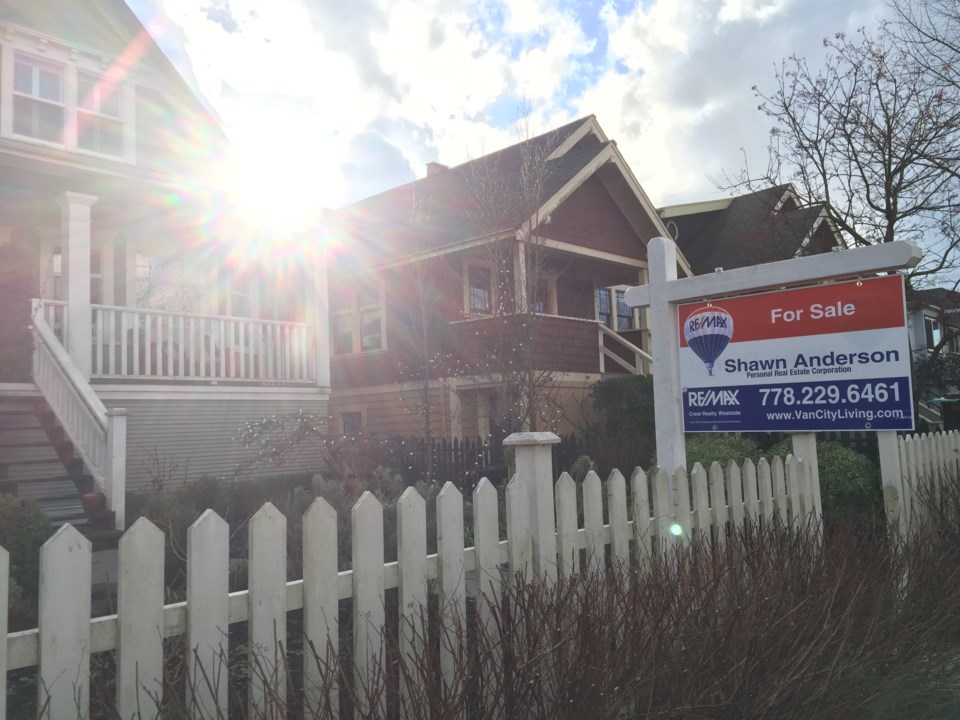If you’re new to Vancouver, you’ve probably figured out that we love to obsess over two things: rain and real estate. Both subjects tend to drive us crazy, because we can’t really control either one: our rain will fall, and our real estate will rise.
Recently, there’s been a frenzy of conjecture, lament, and flat-out doomsday panic over rising property values in Vancouver, mostly spurred by the recently released Property Assessment Notices, which confirm that over 90 per cent of “single-family homes” in our city are worth more than $1 million.
Vancouver’s ever-growing real estate market was recently the subject of ridicule (again) when a dilapidated, rotting, 86-year-old Point Grey home was listed at $2.4 million. The post went viral, but almost all of the outrage completely missed the point of the price.
The crappy old house doesn’t matter one rotten shingle. It’s the dirt the rotting wood is sitting on that’s worth millions. That simple, soiled fact is what so many people, both within Vancouver and beyond, have such a hard time wrapping their heads around.
The clear and present outrage declaring our 2016 real estate prices out of control and killing this city is omnipresent, but here’s the thing: that same complaint, that same outrage, has crested over three different centuries in this city. Nothing has changed since Vancouver was incorporated back in 1886. In our first year, a downtown lot was selling for roughly $400, which received outcries of price gouging, but hey, the railway was coming! In 1891, the same lot was selling for roughly $1,000. By the turn of the 20th century, that same downtown lot was selling for $4,000. The value of the land was doubling roughly every five to 10 years, and it’s never stopped.
Don’t believe me? Ask my dear old dad. He’s an independent land developer who has studied Vancouver property value in staggering depth. His office looks like Carri Matheson’s living room in Homeland. Like Hong Kong, Manhattan, San Francisco, Sydney, or many other cities completely or partially surrounded by water, Vancouver’s dirt is oh-so-limited. Like Manhattan or San Francisco, but unlike, say, Winnipeg, the City of Vancouver does not have endless land on which to build houses, bordered by Burrard Inlet to the north, the Fraser River to the south, and the Strait of Georgia to the west. What you see is what you get. That’s why, when we find a pocket of land (like say the filthy but precious strip of dirt beneath the soon-to-be-removed Georgia Viaduct), it’s a pot of gold, and very contentious. Another reason for the value is obvious: Vancouver is one of the most beautiful and livable cities on the planet. People want to live here and get pissed off when they can’t. Facebook is full of this. Foreign investors arrive (be they from Scotland in the 1890s or China in the 1980s), and help create fierce competition for our scarcest commodity.
Check for yourself: if you or anyone you know owns a “single-family home” in Vancouver, you’ll note with eye-popping clarity that your land value is indeed doubling on average every five years (that’s the land, not the buildings).
Here’s the dirty truth: our ever-rising land values have nothing to do with the current record low interest rates, greedy real estate agents, or off-shore investors. The demand for Vancouver land has always been here, in one form or another, and it’s not going away.
The trick to Vancouver real estate is to simply get your foot in the door: if you can, start small with a condo, build up your equity over years, and climb the real estate ladder. That’s the real dirt about this beautiful, rainy, real estate-crazed city we call home.



